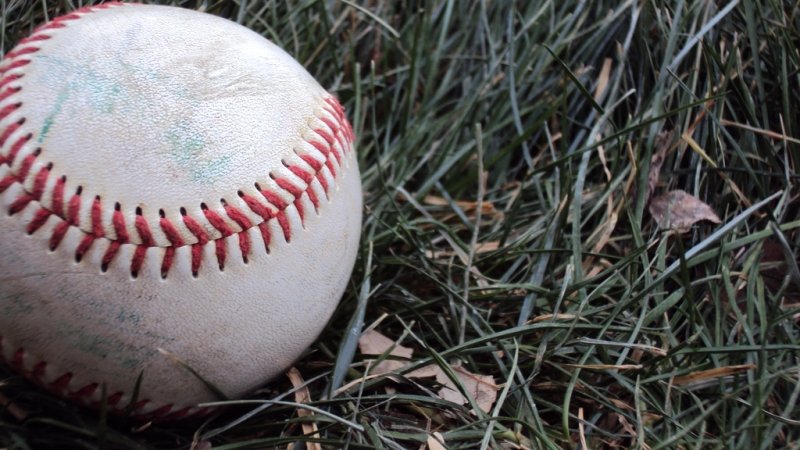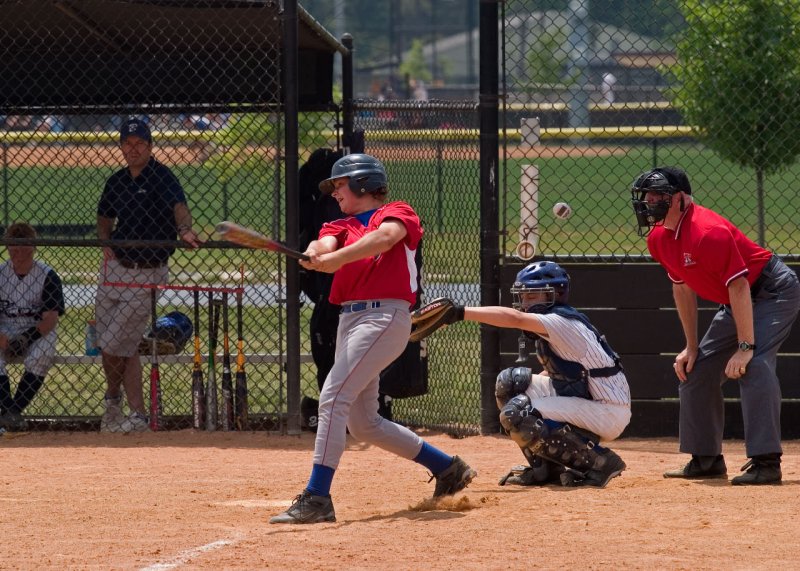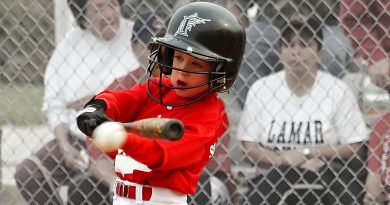Relay
Off the wall in left center, the fielder scoops up the ball as the runner approaches third. The Catcher has aligned the cut off man for a straight ball path from the fielder to home plate. Center fielder drills the ball to the cutoff man with all his might. Cutoff man does the two step shuffle, catch, shuffle throw and off goes the frozen rope to home in plenty of time for the tag.
In modern baseball from youth thru seniors, moments like these are proudly displayed in flash on Myspace and Youtube. Photos, Video and Blogging hit the information highway at lighting speeds to announce the play of the day.
What many fail to see or talk about in their Myspace feeds is what actually made this play successful. Was it merely the excellent throwing arms of the players? Was the runner a bit on the slow side when rounding the bases?
Success is based on a series of practiced events that culminate in one play. First, the fielder controls the ball while the cutoff man raises their hands to make a good target and keeps his eyes on the fielder. The catcher is guiding the relay man to make a straight path for the ball to follow. Now comes the relay, simple as a catch throw, catch and tag.
To prepare the relay man for what they need to accomplish it really breaks down to the basics, catch and throw. Added is the excitement of the game and the rush the players put upon themselves to complete the process quickly.
Not all the different from warm up. Players are standing with their goal of throwing a ball to their teammate to the comfortable catch area between the shoulders and above the belly button and below the ears.
Now comes the dance of the relay man. Their first responsibility is to catch the ball. Then turn the head and hips to acquire the target. In our case, the catcher. As the core is wound they finish their turn and release the ball towards the target. The dance is where only one portion of this entire event goes awry from the warm up.
So much of baseball is situational. Even the situations themselves have variations within variations. Aside from playing hundreds of games to gain the experience of those situations or viewing hours of Myspace video feeds there are drills that cover the basics without having to go into practice stifling situations.
We have already covered the warm up and the goal of throwing. To add the twist, set up a relay with three players. Spaced 30 to 40 feet apart, the man in the middle practices the relay dance. This is where the coaching comes in. View the footwork and core loading. Make corrections as needed but try to keep the ball moving. With the player concentrating on the catch and throw, following instruction during this time will help the player from compound information. Compounding information forces the player to react as opposed to think about their movements, which is also called muscle memory.
For teams with players under 18, everyone should have a stint in the middle. Who you may think will be a catcher for life could ultimately become a world class short stop. It is best to keep in mind that all players play all positions until they are either on scholarship or paid to play.
With all your players having the dance figured out, it is time to add some twists. Creating relay races are a great way to add excitement and more of a game situation to the drill. Create conditions that engage the players for several minutes.
Relay the ball down and back then rotate the players. The first relay team to rotate through all the players wins. As there are only 3 to a side, you may consider prizes for the winning side such as flavored water or small packages of sunflower seeds. It is not the prize that counts, it is the victory.
To work alignment into the drill, after player 1 releases the ball, have them shift 5 to 10 feet left or right while maintaining their distance from the relay man. As the relay man releases the throw to player 3, player 1 begins giving direction to the relay man; shout left or right to bring the player into alignment. Player 3 throws back to the relay and repeats what player 1 has done.
This drill takes up quite a bit of room but makes for a sure fire way to practice the dance with more situations padded into the exercise. Add to all the commotion is that your fielders are now having to work a little harder at spotting the relay man as they are on the move.
At the end of the day if the players had fun, the coaches had fun, everyone leaves happy, a little tired and wanting to return again. As the coach you alone make practices as fun and exciting as going to the circus or as dreary as doing multiplication tables. Opt for the circus and you will be the pied piper for the team where the players and parents will gladly follow.




